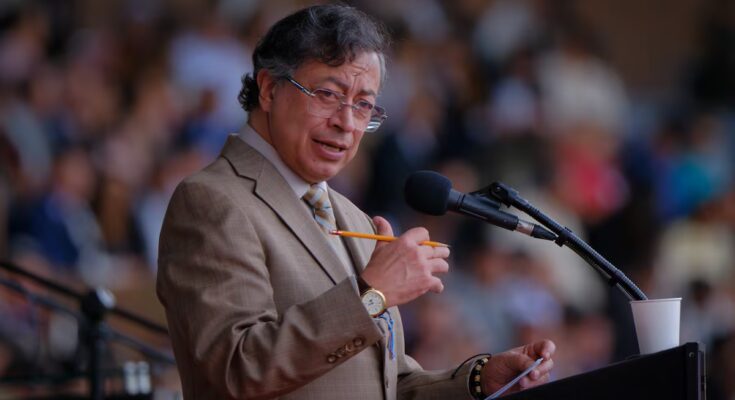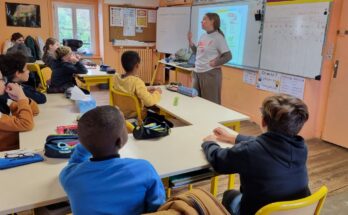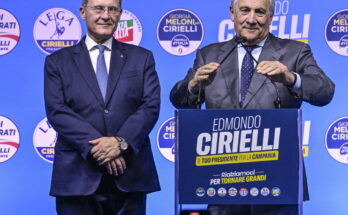The reversal is astonishing. Gustavo Petro, the first left-wing president of contemporary Colombia, has closed ranks in defense of the kind of military operations he condemned in the past, when he was a member of the opposition. “Saying that attacks must be stopped during the offensive actions of drug traffickers means inviting them to recruit more children,” he wrote on his social media on Tuesday, rejecting the message of the Ombudsman, Iris Marín, who had publicly asked him to suspend the strikes and reevaluate the situation. “I reiterate that we did not violate IHL (International Humanitarian Law) in the attacks I ordered. To say that the bombings should stop when we operate within IHL is incredibly naive,” the president insisted on X, his favorite media outlet. He had previously admitted that bombings “always carry a risk”, but had decided to accept it.
15 minors died in military operations carried out by the Armed Forces between August and November in the departments of Guaviare, Amazonas and Arauca, the National Institute of Forensic Medicine confirmed on Monday. Specifically, the deaths of seven minors in Guaviare on November 10, in what is now considered the worst bombing of the Petro era, sparked a heated public debate about human rights amid a complex security crisis.
Petro’s predecessor, conservative Ivan Duque, approved a strike in 2019 in a rural area of Caquetá department, which he initially described as “a flawless operation,” a demonstration of “heroism” and “coordination.” Supported by forensic reports, Senator Roy Barreras – then in opposition, now a presidential candidate – accused the then Defense Minister, Guillermo Botero, of having hidden the deaths of seven minors in that military action. The barrage of accusations ultimately cost him his position, as he resigned in the face of the imminent passage of a no-confidence vote in Congress.
“If the government knew that there were minors before the attack in Caquetá, we would be faced with a war crime, that is, a crime against humanity,” Senator Petro declared at the time. In the final period of the Duque administration, scandals regarding the deaths of minors in attacks resurfaced. Its last defense minister, Diego Molano, even referred to the victims of forced recruitment as “war machines”.
In his three years in power, Petro has adopted several security policies that he once criticized. Airstrikes are one of them. Among the first announcements by Ivan Velásquez, his first defense minister, was the suspension of strikes in camps belonging to illegal groups where minorities may be present. This measure has severely limited such attacks, given that the recruitment of minorities is a constant practice among various armed groups, including so-called dissidents of the now defunct FARC guerrillas; the Gulf Clan, the largest drug trafficking organization in the country; and the ELN, the last remaining armed insurgency.
Military bombing only resurfaced after a Gulf clan ambush killed four soldiers in Segovia, northeast Antioquia, in February 2024. Shortly thereafter, in March, Petro carried out his threat to relentlessly bomb the largest drug trafficking organization in that same region of Colombia. In 2025, under new Defense Minister Pedro Sánchez, a retired air force general, the government carried out more than a dozen airstrikes, mostly against Ivan Mordisco’s dissident faction, the self-styled Central General Staff, or EMC.
Sánchez, who became famous as the special forces general who commanded the search for four indigenous children missing in the Amazon rainforest, became the first military defense minister since the 1991 Constitution. Faced with the ineffectiveness of his total peace policy – which aimed to negotiate simultaneously with all armed groups – and the deterioration of security, President Petro opted for a pragmatic response that more than one observer considers a step backwards.
Laura Bonilla, deputy director of the Foundation for Peace and Reconciliation (Pares), believes that Petro’s turnaround was cemented when he appointed Pedro Sánchez as his defense minister. “He did so with the full awareness of wanting to give a more militaristic twist to his entire security policy,” underlines the expert. The military favors airstrikes because they risk no military casualties, despite the potential consequences for civilians, including children and teenagers, he explains. “The president is currently very committed to this perception,” he says. In this matter, he adds, there is a great electoral calculation at stake and an effort on the part of the Armed Forces to show rapid and decisive results to the United States at a very delicate moment in the relations between two traditional allies.
The reactions keep coming. A vote of no confidence against Defense Minister Sánchez was tabled last Tuesday, with the signatures of several deputies allied with the government, not just those from the opposition. “As I have done in the past, I reiterate my position that actions of this type are clearly prohibited under humanitarian law,” said Senator Ivan Cepeda, presidential candidate of the ruling Historical Pact. “The death of any child is a tragedy; we who are parents know this. And we must fight the recruitment of minors,” said Roy Barreras, who seeks to challenge him within the so-called Broad Front, the coalition that supports Petro. “But a head of state – and I will be one – must protect the lives of everyone, including those of children, soldiers and all Colombians.”
Another Broad Front candidate, former Interior Minister Juan Fernando Cristo, said that “giving up the use of the state’s offensive air capacity through bombing is not sensible at this time.” The underlying problem, he added, is that which arises in the recruitment of minors, “since the Mordisco organization is the one that most frequently resorts to this abominable violation of all human rights norms and international humanitarian law”.
Humberto de la Calle, a former peace negotiator for the now-defunct FARC and often critical of Petro, echoed the president’s sentiments: “The big problem is that if the alleged presence of minors leads to the suspension of military actions, recruitment will skyrocket. The cure is worse than the disease.”
Sign up to our weekly newsletter to get more English-language news coverage from EL PAÍS USA Edition



